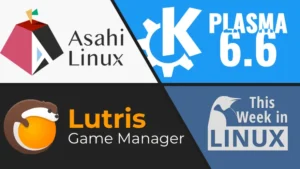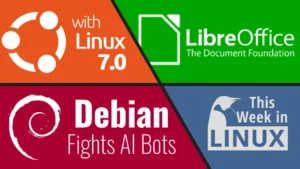This week’s news is exciting with cool new stuff and pretty bonkers because we narrowly avoided a security nightmare! A backdoor was discovered hidden in a common Linux utility, and it could have infected millions of devices. We’ll break down how this almost happened, and what it means for you. Then, we’ll switch gears and talk about some exciting upcoming features in Linux Mint 22. Fedora Linux might be getting a whole new look – we’ll discuss a proposal to switch the default desktop environment. Flathub is making some changes to make it easier to indentify whether or not a Flatpak is official. Plus there is a new campaign for video game preservation that targets companies effectively breaking their games after an arbitary amount of time. All of this and more on this episode of This Week in Linux, Your Source for Linux GNews!
Sponsored by:
Kolide – thisweekinlinux.com/kolide
Want to Support the Show?
Become a Patron = https://tuxdigital.com/membership
Store = https://tuxdigital.com/store
Chapters:
00:00 Intro
01:06 XZ backdoor found in widespread Linux utility – [link, link]
10:26 Flathub adds Unverified Badge to Flatpaks – [link]
14:42 Sponsored by Kolide – [link]
16:05 Stop Killing Games.com – [link, video]
20:28 Linux Mint 22 Update, Future of Linux Mint – [link]
23:23 Fedora Change Proposal for KDE Plasma Default – [link]
25:24 Redis Changes Their Licensing Model – [link]
28:23 Serpent OS Hopes To Ship Pre-Alpha ISOs Soon – [link]
30:42 Flowblade 2.14 Video Editor Released – [link]
32:57 Outro






